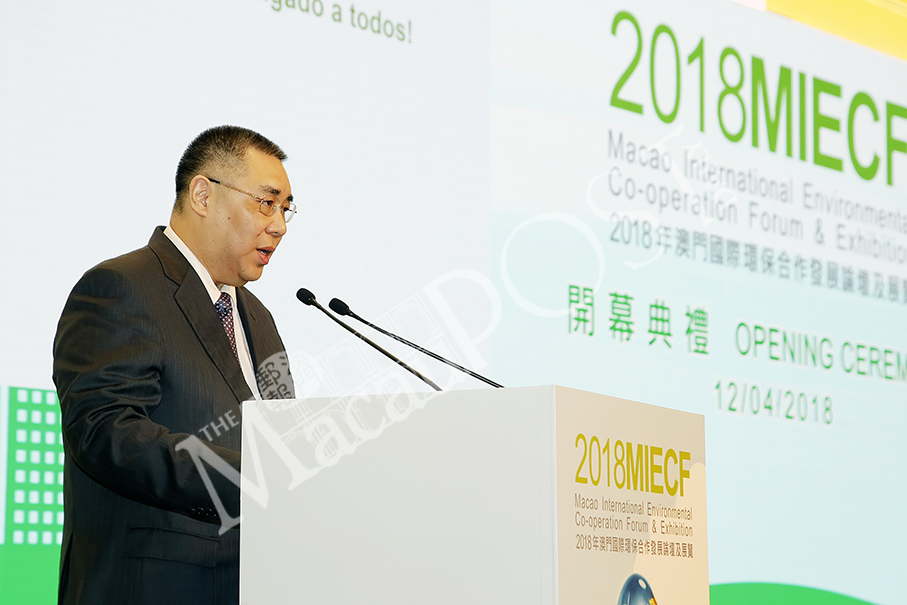The Commission Against Corruption (CCAC) says in a report released yesterday that the Meteorological and Geophysical Bureau (SMG), when forecasting typhoons and hoisting typhoon warning signals, simply relied on the personal judgement and decisions of its former director Fong Soi Kun – who resigned the day after Super Typhoon Hato hit Macau in late August, killing 10, injuring 244 and causing damage estimated by the government to be over 11 billion patacas.
The report says there was no internal mechanism for meetings and discussions on the possible hoisting of typhoon signals by the bureau, adding that the bureau’s top officials stayed at home during non-office hours and made decisions about whether to hoist a particular signal from their homes.
The report can be downloaded on the anti-graft body’s website: http://www.ccac.gov.mo, in the Chinese, Portuguese and English language versions.
Aside from its anti-graft function, the CCAC also includes the role of ombudsman investigating maladministration and administrative
illegalities.
The day after Super Typhoon Hato pummelled Macau on August 23, Chief Executive Fernando Chui Sai On accepted Fong’s resignation over the latter’s widely criticised handling of Hato’s warning signals. Fong submitted his resignation for “personal reasons”.
In late August, the CCAC launched an investigation into the weather bureau over its typhoon forecasting process and internal management, especially over Fong’s controversial handling of Hato’s warning signals. The CCAC yesterday released its report on the
findings of the investigation.
After typhoons Nida and Hato hit Macau in August last year and in August this year respectively, residents complained that the observatory released its forecasting updates too late and even made incorrect forecasts for the two typhoons. They even suspected that the weather station might have deliberately delayed the hoisting of the No. 8 signals for the two typhoons to benefit the city’s gaming operators. After both typhoons, a number of residents requested the CCAC to investigate the weather bureau, the report says.
According to the report, the CCAC found that the weather bureau did not establish a mechanism for discussions and meetings on typhoon forecasting issues. The report says that instead the bureau’s hoisting of typhoon signals simply relied on Fong’s personal judgement and The then director of the Meteorological and Geophysical Bureau (SMG), Fong Soi Kun, speaks to reporters on August 23 during a special press conference held by the government at the Secretariat for Security (GSS) in the S. Francisco Barracks about
Typhoon Hato which killed 10 people. He resigned the next morning. Probe shows ex-weather chief issued typhoon signals from home decisions, adding that the bureau’s frontline forecasters had no idea whether or when a warning signal should be hoisted before they received instructions from Fong.
Fong had headed the weather bureau since 1998.
The CCAC found that when the bureau was considering whether the No. 3 signal or No. 8 or higher warning signal would be raised during office hours, Fong only held meetings with the deputy director and the head of the Meteorology Division, while no frontline forecasters were involved in the process, the report says.
The report says that during nonoffice hours or on public holidays, the bureau’s deputy director would report the situation to Fong over the phone, adding that Fong would, after analysing the relevant data and information on the Internet at his home, and then decide whether to hoist a particular typhoon warning signal.
The report also said that some of the weather station’s equipment was not properly maintained.
The then director of the Meteorological and Geophysical Bureau (SMG), Fong Soi Kun, speaks to reporters on August 23 during a special press conference held by the government at the Secretariat for Security (GSS) in the S. Francisco Barracks about Typhoon Hato which killed 10 people. He resigned the next morning. Photo: Tony Wong
PLEASE READ THE FULL ARTICLE IN OUR PRINT EDITION.








